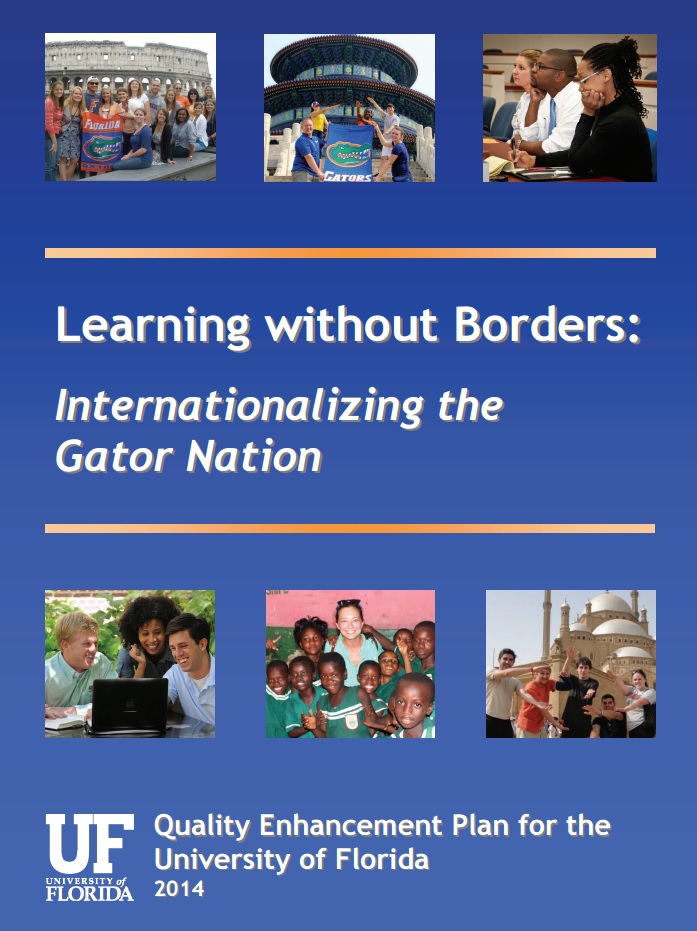The UF International Center is committed to the continuous improvement of the quality and effectiveness of all international initiatives. To this end, it has implemented a variety of assessment processes that provide insights on the effectiveness of international programming, courses, and trainings. This page provides and overview of the assessment instruments and initiatives under the purview of the UF International Center.
UF Quality Enhancement Plan 2014: “Learning Without Borders: Internationalizing the Gator Nation”
UF selected internationalization as its 5-year focus for SACSCOC accreditation. To learn more about the assessment plan developed for this initiative, including the rubrics and assessment instruments developed to evaluate its effectiveness please click the following button.
 International Critical Thinking (IntCRIT) & International Communication (IntCOMM) Attitudes and Beliefs Survey
International Critical Thinking (IntCRIT) & International Communication (IntCOMM) Attitudes and Beliefs Survey
This survey instrument measures student global beliefs and attitudes. Initially developed as part of the assessment plan for the Learning Without Borders initiative, the survey is currently administered yearly at the University of Florida as campus climate survey and as a study abroad pre and post survey. The instrument is available for download and can be used free of charge. To learn more, click the button below.
 UF Data on Campus Climate Survey & Pre- and Post-Study Abroad Surveys
UF Data on Campus Climate Survey & Pre- and Post-Study Abroad Surveys
As part of the assessment plan for the UF QEP, the Office of Global Learning at the University of Florida International Center has distributed the "International Critical Thinking and International Communication Attitudes and Beliefs Survey" to UF undergraduate students as a campus climate and pre and post study abroad survey since 2014. A summary of the 2014-2019 findings, including data on gender and ethnicity, is available in the form of a PowerPoint presentation and a recorded video:
- Life After the QEP Leveraging Assessment Data for Sustained Improvement, Tim Brophy and Paloma Rodriguez, 2019 SACSCOC conference, Houston, TX.
- Global Learning Gaps: The Impact of Ethnicity and Gender, Paloma Rodriguez, Mary Kay Carodine, and Tim Brophy, 2020 Assessment Conference.

